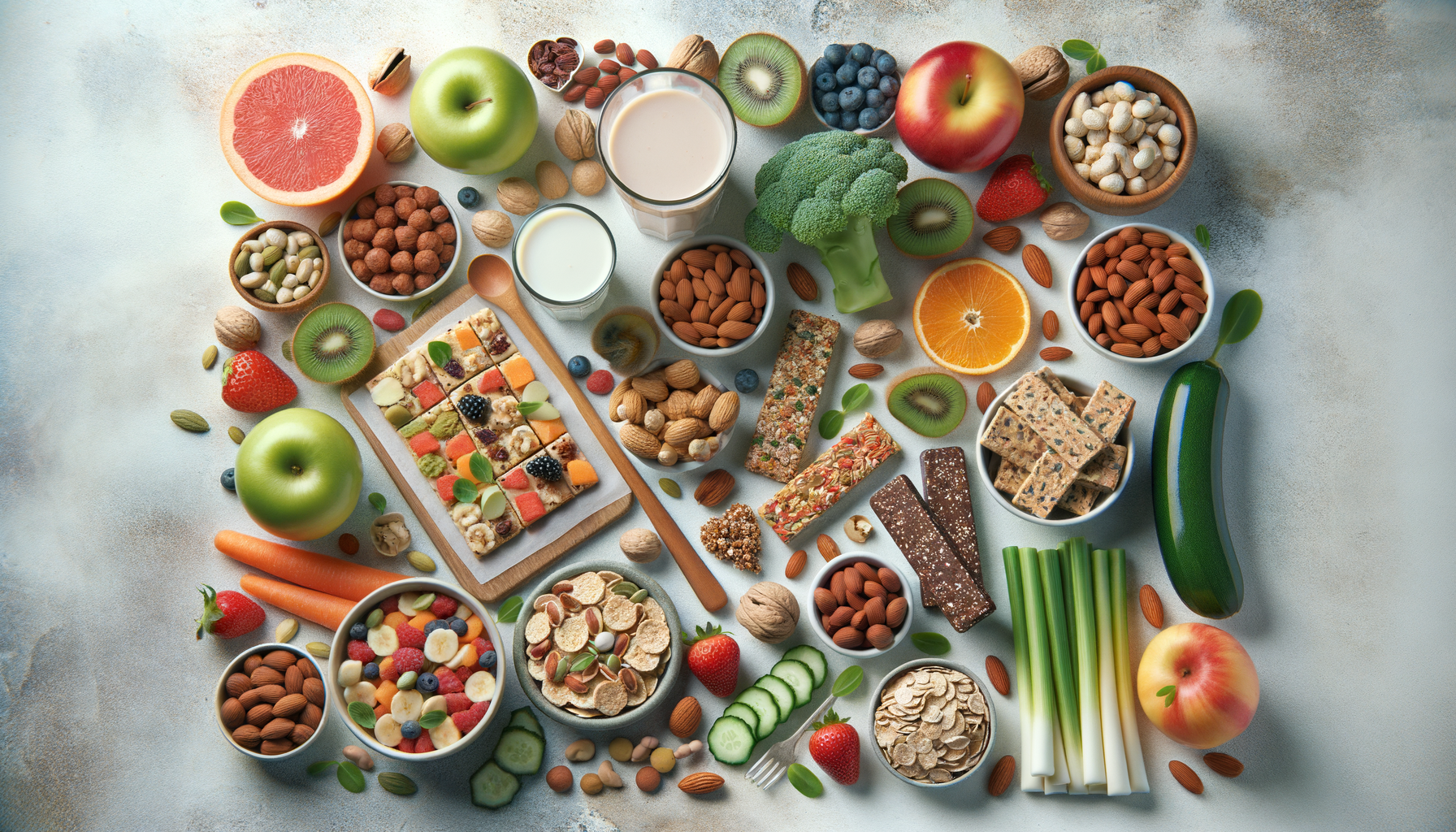Understanding the Role of Snacks in a Balanced Diet
Snacks have evolved from merely being a quick bite to an essential part of our daily nutritional intake. As schedules become more hectic, the reliance on snacks to bridge the gap between meals has increased significantly. However, not all snacks are created equal. The key is to choose those that contribute positively to your dietary needs. A balanced diet incorporates snacks that are rich in nutrients, helping to maintain energy levels and curb hunger between meals.
When selecting snacks, consider those that offer a balance of macronutrients: carbohydrates, proteins, and fats. This balance ensures sustained energy release and satiety. For instance, a handful of nuts provides healthy fats and proteins, while a piece of fruit offers natural sugars and fiber. Together, they form a snack that is both satisfying and nutritious.
Furthermore, snacks can be an opportunity to include more fruits and vegetables in your diet. Raw veggies with hummus or a fruit salad can be both refreshing and nourishing. These snacks not only boost your vitamin intake but also contribute to your daily fiber requirement, promoting digestive health.
- Choose snacks with a mix of macronutrients.
- Incorporate fruits and vegetables for added vitamins and fiber.
- Avoid snacks high in added sugars and unhealthy fats.
The Nutritional Benefits of Whole Foods as Snacks
Whole foods are renowned for their nutritional density and can make excellent snack choices. Unlike processed snacks, whole foods retain their natural nutrients and are free from artificial additives. This makes them a healthier option for those looking to maintain a balanced diet.
For example, whole grains like oats or quinoa provide complex carbohydrates that are digested slowly, preventing spikes in blood sugar levels. Pairing these with a source of protein, such as yogurt or nuts, can enhance their nutritional profile and keep you fuller for longer.
Fruits and vegetables, as whole foods, are packed with vitamins, minerals, and antioxidants. A snack like apple slices with almond butter not only satisfies hunger but also delivers a dose of vitamin C and healthy fats. Similarly, carrot sticks with guacamole offer a crunchy, flavorful snack that’s rich in beta-carotene and healthy fats.
- Whole grains provide slow-releasing energy.
- Fruits and vegetables are high in vitamins and antioxidants.
- Pair whole foods with proteins for a balanced snack.
Exploring Creative Snack Combinations
Creativity in snacking can transform mundane munching into an enjoyable and nutritious experience. By combining different flavors and textures, you can create snacks that are both satisfying and exciting. This approach not only caters to your taste buds but also ensures a variety of nutrients.
Consider a trail mix made from a blend of seeds, nuts, and dried fruits. This snack is not only easy to prepare but also offers a range of nutrients, including healthy fats, fiber, and natural sugars. Another creative option is a smoothie bowl, which can be customized with a base of blended fruits and topped with granola, chia seeds, and fresh berries.
For those who enjoy savory snacks, roasted chickpeas seasoned with herbs and spices can be a crunchy delight. These are high in protein and fiber, making them a filling option. Similarly, whole-grain crackers with avocado and a sprinkle of chili flakes offer a creamy, spicy treat that’s rich in healthy fats.
- Trail mix with seeds, nuts, and dried fruits for variety.
- Smoothie bowls with diverse toppings for customization.
- Roasted chickpeas or whole-grain crackers for savory options.
Smart Snacking for Different Dietary Needs
In today’s diverse dietary landscape, it’s important to choose snacks that align with personal health goals and dietary restrictions. Whether you’re vegan, gluten-free, or following a low-carb diet, there are plenty of snack options to suit your needs.
For a vegan diet, plant-based snacks such as edamame, almond butter on rice cakes, or fruit and nut bars are excellent choices. These snacks provide essential nutrients like protein and healthy fats without the need for animal products.
Those following a gluten-free diet can enjoy snacks like rice cakes with hummus, gluten-free granola, or fresh fruit. These options ensure you avoid gluten while still getting necessary nutrients. For a low-carb lifestyle, snacks like cheese slices with olives or cucumber sticks with cream cheese can be both delicious and satisfying.
- Vegan options: edamame, almond butter, fruit bars.
- Gluten-free choices: rice cakes, gluten-free granola.
- Low-carb snacks: cheese with olives, cucumber with cream cheese.
Conclusion: Embracing Healthy Snacking Habits
In conclusion, snacking can be a beneficial part of a balanced diet when approached thoughtfully. By opting for whole foods, creative combinations, and snacks that cater to specific dietary needs, you can enjoy tasty treats that support your health goals. Remember, the key is moderation and variety, ensuring that your snacks contribute positively to your overall nutritional intake.
As you explore the world of wholesome snacks, consider your preferences and dietary requirements. Experiment with different flavors and textures to find what satisfies you best. With the right choices, snacking can be a delightful and nutritious part of your daily routine.








